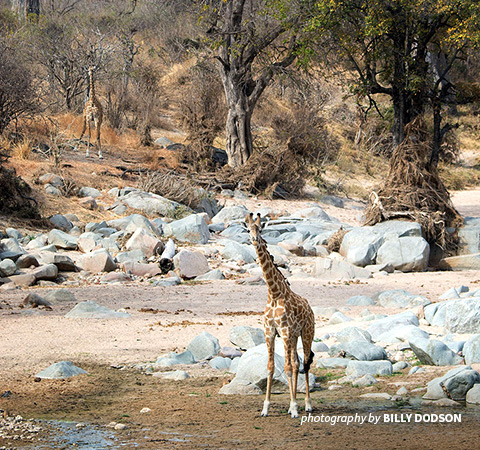Why Europe needs to act now on climate change resolutions

In February, the Climate Change 2022: Impacts, Adaptation and Vulnerability Intergovernmental Panel on Climate Change report reminded us that the world is faced with two interlinked crises: climate breakdown and biodiversity loss. Between the two, we have an existential crisis and if we do not act now, we may reach a point of irreversibility sooner than we think .
Subsequently, the question is how can we, as Africans, be part of the solution as living on a continent that is rich with resources? Think about it — the Congo Basin is commonly called Earth’s second lung. The Basin’s forests and soils absorb carbon, regulate global weather patterns, and provide water, food and fuel for the world. The solutions undoubtedly lie within Mother Africa.
Africa’s riches have never been in question. However, who gets to use and benefit from these riches is always in question. We are now in a world where all players matter in addressing the twin challenges of biodiversity loss and climate change. To that end, Europe needs to rethink and redefine their relationship with Africa. The 6th European Union-African Union Summit held in February 2022 is a testament that the world understands that Africa is a big part of solving the world’s greatest challenges.
African countries are only responsible for 4 percent of global carbon emissions and our consumption patterns are a fraction of the world average, yet we are disproportionately affected by the catastrophic consequences of climate change and accelerated environmental degradation. When we turn on the news, reports of droughts, famine, floods, and tropical storms are almost a daily occurrence.
Industrialization has been at the center of the world’s development trajectory. Over the last 200 years, global economic progress has been unimaginable. However, with this growth, we have also seen nature degraded to a degree that exposes us to negative and irreversible impacts on people. Evidently, our economic model of growth needs a paradigm shift that puts people and nature at the center, rather than as bystanders. We need a model for growth that puts ecological conservation and social well-being at the heart of the economy.
Fortunately, solutions for these challenges can be found by taking a landscape approach to designing conservation and development systems that restore ecological systems, sustain people, and help to address climate change. If planned well and managed responsibly, large intact lands can mitigate climate impacts, helping wildlife and people adapt. Healthy large landscapes help absorb carbon emissions. Ensuring these landscapes survive and remain intact is not only vital for the survival of wildlife, but a necessary factor for building climate resilience.

It takes significant resources to manage landscapes. In a recent survey AWF experts conducted with wildlife management authorities in Africa in early 2020, protected area directors indicated that their biggest challenge lies in the lack of adequate and sustainable financing mechanisms for conservation.
How Africa develops is a choice we make
Addressing conservation financing shortfalls must be a priority for development partners. Resolution 4 of the Final Communiqué of the 6th European Union-African Union Summit on climate change renews the shared commitment to stimulate public and private investments by building on existing partnerships and initiatives in a more inclusive, sustainable, and resilient manner. This is to ensure that Africa adapts and mitigates the adverse effects of climate change. From a policy perspective, this looks great on paper. We urgently need implementation mechanisms to ensure we do not repeat past mistakes that have contributed to the delayed realization of Africa’s Nationally Determined Contributions, which was primarily due to the lack of finances.
The adoption of a joint declaration on the Africa-Europe 2030 vision — in which Europe aims to implement a global investment strategy of at least €150 billion to support African-led projects — is admirable. Conversely, the priority sectors of transport infrastructure, digital networks, and energy, need to ensure that conservation is well-incorporated from concept development to the monitoring and evaluation design processes. This will ensure we do not end up in the continuous loop we have been stuck in for decades where conservation is viewed as a competing factor to development.
Development that considers conservation is the only choice if we want to secure our collective futures. African Wildlife Foundation believes that Africa offers unique and sustainable clean energy solutions rooted in from the continent’s abundant natural water, wind, and solar base.
The opportunity exists and the young innovators are constantly challenging the status quo with homegrown solutions that can be used to reverse biodiversity loss and mitigate climate risks. So, what are we waiting for? From most of the dialogues I have been a part of, the answer is simple: we need strategic and innovative partnerships to propel the world to the level where policy translates to on-the-ground work that makes an impact from the bottom up.
Rather than donating bilateral aid to African countries, Europe needs to invest in development partnerships. Africa is looking for public and private sector partnerships that build knowledge and technology, equitable investments, and inclusive businesses. Let us commit to transform multilateral summits, conventions, and dialogues into concrete actions that will sustain our planet. Before it is too late, let us walk together towards a vision of shared prosperity and well-being for all.